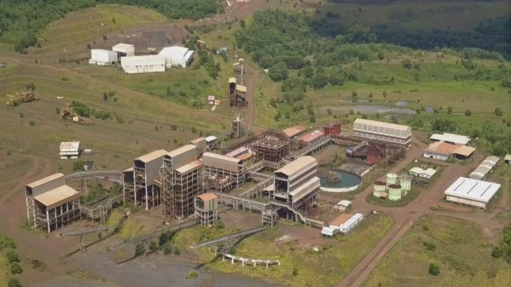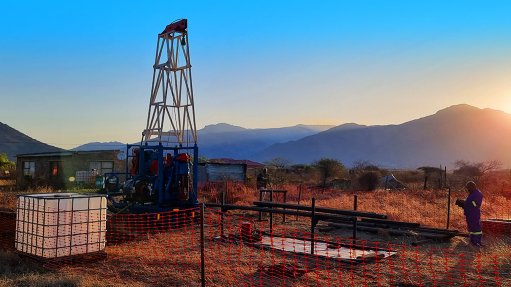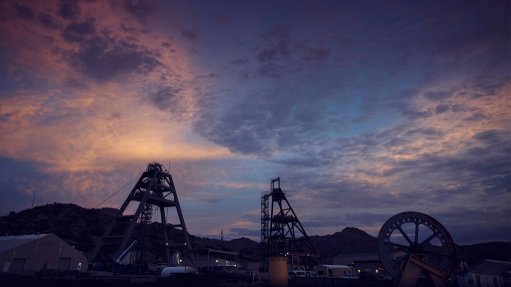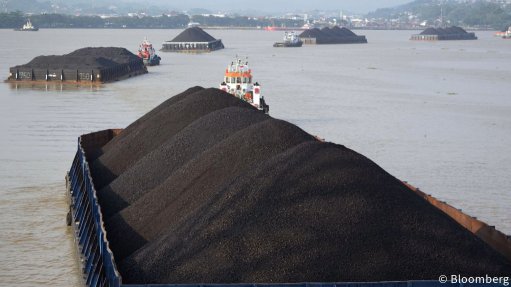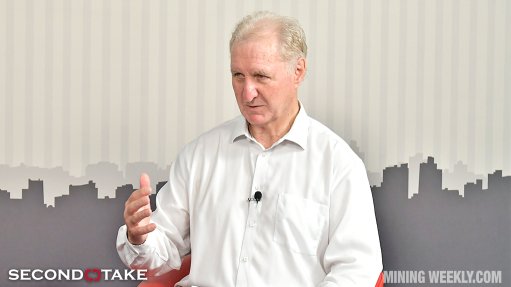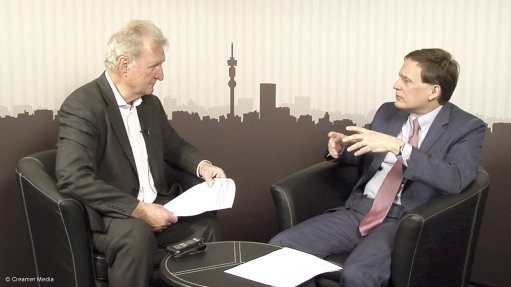Africa must democratise access to innovation

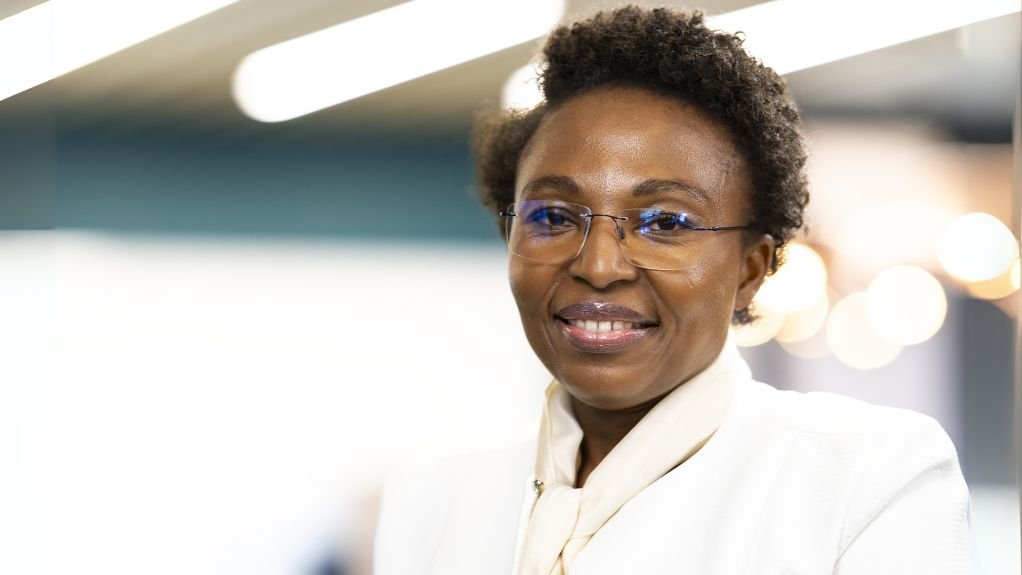
BONGI NTSOELENGOE Without intentional strategies to include smaller players, the benefits of innovation will continue to bypass much of the sector
The time to ensure no one is excluded from Africa’s mining technology revolution is now, reports mining conference and exhibition Investing in African Mining Indaba disruptive technologies committee member and Council for Scientific and Industrial Research (CSIR) mining cluster executive manager Bongi Ntsoelengoe.
The shift, she says, is happening across the continent, as digital technologies such as AI, automation, blockchain and real-time monitoring become central to mining operations; however, as larger companies move ahead with innovation, many smaller mining companies, including women-owned operations and emerging enterprises, risk being left behind.
This particular issue drew focus during the 2025 Mining Indaba, held in Cape Town in early February, where stakeholders across the mining value chain discussed the need for more ethical, traceable and tech-enabled mineral production.
The message of technology to drive inclusive, sustainable growth, especially as global industries increasingly demand responsibly sourced critical minerals, emerged clearly during the Indaba, says Ntsoelengoe.
While Africa holds a significant share of the world’s mineral wealth, much of its mining economy remains underdeveloped and disconnected from digital systems, highlights Ntsoelengoe, adding that this has left many small and mid-sized operations operating manually, without access to modern tools or data-driven systems that could improve safety, reduce costs and meet environmental standards.
For these mining companies, she says the shift to smart mining is not just a matter of investment but also a matter of access.
“If we want mining to be a true economic multiplier for Africa, we must support local tech entrepreneurs, researchers and startups to create solutions that respond to our realities,” says Ntsoelengoe.
This includes the development of technologies that are affordable, adaptable and able to function in areas with weak infrastructure, with solutions such as low-cost modular systems, mobile-friendly apps, and cloud-based tools helping “level the playing field”.
Public-Private Partnerships
In South Africa, public-private partnerships, such as those linked to the Mandela Mining Precinct, are already co-developing technologies that address local mining challenges, says Ntsoelengoe, adding that these efforts focus on practical, inclusive solutions that can also support junior miners and small-scale operators, especially those lacking access to capital, skills or connectivity.
Such projects range from smart beneficiation tools and remote monitoring platforms to digital safety systems designed for smaller processing plants.
These tools should not be limited to pilot projects, she says, noting that they should instead be democratised to open access to innovation. “That means creating shared spaces where people from different parts of the mining ecosystem can collaborate, whether they’re a junior miner in Zambia, a software startup in South Africa, or a local university researcher.”
Training and skills development are critical to unlocking the full potential of advanced mining technologies, because without a skilled workforce, even the most advanced technology cannot deliver results.
For this reason, Ntsoelengoe believes the future of African mining depends on educating the next generation of mining professionals in digital skills, from coding and data science to automation and AI, supporting their entry into the sector.
For women, youth and entrepreneurs, she says these skills can open doors to meaningful participation in a fast-changing mining economy.
The importance of inclusion goes beyond fairness because when smaller miners are empowered to operate safely, efficiently and transparently, the entire industry becomes more competitive.
Empowering smaller miners also builds trust with international buyers who increasingly expect full traceability of supply chains and compliance with environmental, social and governance (ESG) standards, notes Ntsoelengoe.
Ethical Sourcing
Across Africa, digital traceability systems are already being tested using blockchain technology to verify the origin of minerals and ensure ethical sourcing, with real-time ESG dashboards and virtual training tools also helping to improve mine planning, monitoring and workforce safety, highlights Ntsoelengoe.
However, without deliberate strategies to include smaller players, she says these benefits will remain out of reach for many.
Nonetheless, Ntsoelengoe says technology-in-mining trends will again be central at the 2026 Investing in African Mining Indaba, with the event’s Tech & Innovation Stage set to serve as a platform to showcase scalable solutions and promote cross-border collaboration.
The Indaba is also expected to support African-led innovation by highlighting local startups, encouraging regional digital coordination and opening dialogue on inclusive policy development.
“Mining Indaba is a powerful springboard for collaboration. It’s where we can align around a shared vision that puts people and purpose at the centre of digital transformation,” says Ntsoelengoe.
She explains that as Africa’s mining sector moves deeper into its digital era, the challenge is no longer whether technology will be adopted, but rather who it will benefit.
“Africa cannot afford to create a two-speed mining economy. We need everyone at the table – big or small, urban or rural, established or emerging – if we are going to unlock the full value of our mineral wealth in a way that benefits all,” concludes Ntsoelengoe.
Article Enquiry
Email Article
Save Article
Feedback
To advertise email advertising@creamermedia.co.za or click here
Announcements
What's On
Subscribe to improve your user experience...
Option 1 (equivalent of R125 a month):
Receive a weekly copy of Creamer Media's Engineering News & Mining Weekly magazine
(print copy for those in South Africa and e-magazine for those outside of South Africa)
Receive daily email newsletters
Access to full search results
Access archive of magazine back copies
Access to Projects in Progress
Access to ONE Research Report of your choice in PDF format
Option 2 (equivalent of R375 a month):
All benefits from Option 1
PLUS
Access to Creamer Media's Research Channel Africa for ALL Research Reports, in PDF format, on various industrial and mining sectors
including Electricity; Water; Energy Transition; Hydrogen; Roads, Rail and Ports; Coal; Gold; Platinum; Battery Metals; etc.
Already a subscriber?
Forgotten your password?
Receive weekly copy of Creamer Media's Engineering News & Mining Weekly magazine (print copy for those in South Africa and e-magazine for those outside of South Africa)
➕
Recieve daily email newsletters
➕
Access to full search results
➕
Access archive of magazine back copies
➕
Access to Projects in Progress
➕
Access to ONE Research Report of your choice in PDF format
RESEARCH CHANNEL AFRICA
R4500 (equivalent of R375 a month)
SUBSCRIBEAll benefits from Option 1
➕
Access to Creamer Media's Research Channel Africa for ALL Research Reports on various industrial and mining sectors, in PDF format, including on:
Electricity
➕
Water
➕
Energy Transition
➕
Hydrogen
➕
Roads, Rail and Ports
➕
Coal
➕
Gold
➕
Platinum
➕
Battery Metals
➕
etc.
Receive all benefits from Option 1 or Option 2 delivered to numerous people at your company
➕
Multiple User names and Passwords for simultaneous log-ins
➕
Intranet integration access to all in your organisation







